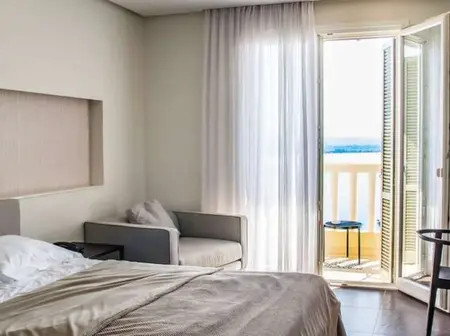The hospitality industry is known for how fast-paced it is. Trends come and go in the blink of an eye, and customers change their preferences in a snap. Hotel room resales aren’t a stranger to this, and, fortunately, dynamic pricing emerges as a game-changer.
This article explores the nuances of dynamic pricing tactics, shedding light on how this strategy can optimize profits in the hotel industry.
Dynamic pricing is a strategy where businesses adjust the prices of their products or services based on real-time market demand and supply. In the hotel industry, this means that room rates can fluctuate depending on factors such as the time of year, local events, and even competitor pricing.
Let’s break down dynamic pricing into two simple strategies: Price Discrimination and Real-time Pricing.
Dynamic pricing involves price discrimination, where hotels set different prices for their rooms based on various factors. Types of price discrimination include first-degree, second-degree, and third-degree. For instance, a hotel may charge more for rooms during peak seasons or special events.
Real-time pricing leverages technology to adjust prices dynamically. This tactic is especially crucial in hotel room trading, where rates can fluctuate based on supply and demand. Implementing real-time pricing requires advanced technology but offers significant benefits for hotels engaged in room trading.
Dynamic pricing not only maximizes revenue but also ensures effective competition in a bustling market. Additionally, its adaptability allows hotels to navigate through market changes seamlessly, maintaining profitability even in challenging times.
Maximizing Revenue
One of the primary advantages of dynamic pricing is its ability to maximize revenue. By analyzing market demand and adjusting prices accordingly, hotels can ensure they are charging the optimal rate for each room hence improving on the hotel room resales.
Competing Effectively
Dynamic pricing allows hotels to stay competitive in a crowded market. By offering competitive rates based on real-time factors, hotels can attract more guests and outperform competitors.
Adapting to Market Changes
The hotel industry is dynamic, with demand constantly shifting. Dynamic pricing enables hotels to adapt swiftly to changes in the market, ensuring they stay profitable even during challenging times, which in return boosts up hotel room resales.
Now, let’s unravel the factors that shape dynamic pricing, making it work like a charm.
Let’s delve into the nuts and bolts of making dynamic pricing work seamlessly in the world of hotel room trading.
Investing in the right technology is crucial for successful dynamic pricing. Hotels should opt for advanced revenue management systems that can analyze data in real-time and suggest optimal pricing strategies for room trading.
Implementing dynamic pricing requires a skilled workforce. Hotel staff involved in revenue management must be trained to understand the intricacies of dynamic pricing and make informed decisions based on real-time data.
Dynamic pricing is an ongoing process that requires constant monitoring and adjustment. Hotels engaged in room trading need to regularly analyze market trends and adjust their pricing strategies accordingly.
Navigating dynamic pricing in hotel room trading comes with a set of challenges that require thoughtful strategies.
Consumer Perception: One challenge in dynamic pricing for hotel room trading is how consumers perceive fluctuating prices. Hotels must communicate transparently about their pricing strategies to build trust and avoid negative perceptions.
Managing Rate Parity: Maintaining rate parity across different distribution channels is a challenge. Hotels need to ensure consistency in pricing to prevent conflicts and maintain a positive brand image.
Ethical Considerations: There are ethical considerations in dynamic pricing, especially in hotel room trading. Hotels must strike a balance between maximizing profits and ensuring fair and ethical business practices if they want to succeed in boosting hotel room resales.
Successfully navigating the dynamic landscape of hotel room trading requires a strategic approach. Implementing best practices ensures that hotels not only maximize revenue but also stay ahead of the competition.
From leveraging customer feedback to collaborating with technology providers, here are key practices for hotels to excel in the art of room trading:
Dynamic pricing is a powerful tool for hoteliers seeking to optimize profits in hotel room resales. By understanding the benefits, challenges, and best practices associated with dynamic pricing, hotels can stay competitive, maximize revenue, and adapt to the ever-changing market.

Leave a Reply